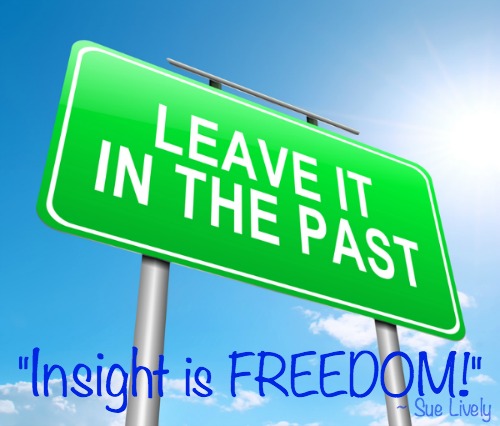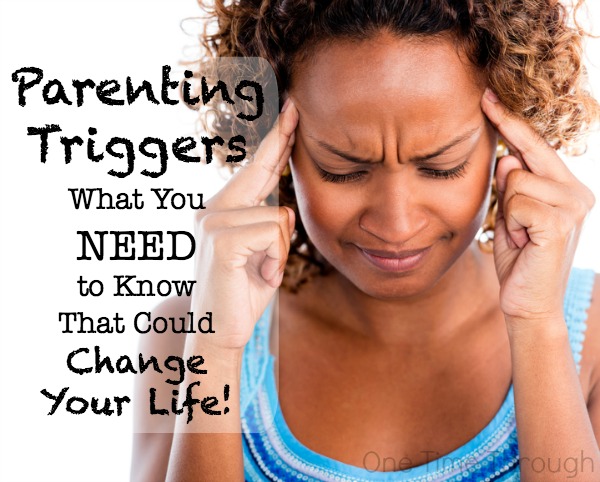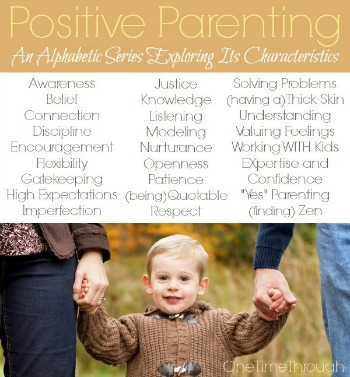We all have bad days as parents (sometimes bad weeks and months!). Parenting can be an emotionally exhausting journey with long days and sleepless nights (believe me, I know!).
But if you find that you’ve been having more days than not when you are yelling at the kids, or resorting to endless time-outs or even spankings, I hope you can take a few minutes to read this post.
It may change your life.
And I know that sounds over-dramatic…but…
When I first learned about today’s topic, parenting triggers, it made such a hugely positive change in my personal life, and my parenting approach, that I began running this website and blog to share everything I had learned with others.
This post contains Amazon Affiliate links. Please see Disclosure for full details.
Let me give you a little background to start.
I recently attended a talk where positive parenting expert Alyson Schafer spoke about the reasons why kids “misbehave” and what we can DO about it (click here to read more about all the awesome things I learned at that talk).
She passed on all kinds of wisdom that night, but this one phrase of hers really stuck with me.
“There’s more things to learn than you know!”
~ Alyson Schafer
A truer phrase has never been spoken. And for me, since my parenting journey has begun, I’ve become all too aware of the truth of this statement!
I’m pretty sure the reason Alyson said it – was to encourage parents to continue to reflect on their parenting approaches, to continue to talk with others, and learn positive strategies to raise children.
In other words – she was encouraging parents to be open.
Open to reflection, open to admitting we are not perfect, and open to learning how to be better parents.
And I’m sure if you’re here reading this, you are here being open and looking for more ways to help your kids grow up to be happy, emotionally healthy, and responsible adults.
We all want that for our kids.
However, even with the best intentions and reflection, things that are out of our conscious control can get in the way of us doing our best with this job.
What I’m referring to are “triggers.”
If you haven’t heard this term before, it refers to an event that happens that leads you to feel excessively angry, upset, or helpless.
In parenting terms, when your child does something that makes you feel suddenly very angry, or hurt, or helpless – you have been triggered!
What ARE Triggers & Why Do I Need to Know About Them?
I first learned about triggers when I read the book Raising Our Children, Raising Ourselves by Naomi Aldort.
According to Naomi, many times when our children get upset, and we get angry or annoyed by their expressions of this (whining, tantrums, and crying) it is often more about OURSELVES and our OWN difficulties processing these emotions than the child’s behaviour.
For me, this was a lightbulb moment!
For as long as I could remember, I had struggled myself with handling negative emotions.
Much of my adult life until that point had been spent trying to avoid feeling sad or angry – and the efforts were emotionally exhausting, and frankly never worked anyway.
When my son was a baby, the sound of his crying would send me into a panic. My heart would race, I would suddenly feel sweaty and slightly out of control, and fearful.
I would start doing almost anything to get him to settle down – rocking him, cuddling him and/or nursing (all of which were good things – and what Mother Nature intended!).
However, as my son got older (and stopped nursing!), the panic that was triggered when he was younger, turned into irritation and annoyance, and especially if I felt I couldn’t comfort him…it would turn into frustration, helplessness, and anger.
My husband experienced similar feelings too – and we both struggled with knowing that these were completely natural and healthy ways for my son to express his discomfort, sadness, and upsets (which deserved an empathetic response) – while not being able to respond that way when we were feeling upset (or triggered) too!
“Live so that when your kids think of fairness, caring and integrity, they think of you.”
~H. Jackson Brown, Jr.
That’s the problem with triggers – they interfere with our ability to effectively and positively parent our kids.
Instead of reacting calmly and supportively when our kids are upset or are experiencing other challenges, we may find ourselves yelling, getting short with them, telling them to stop crying, or threatening to send them away from us (Time-Outs etc.).
We often do these things to lessen our own emotional discomfort which has been triggered…not necessarily because these strategies are the best way to help our kids.
Common Parenting Triggers
If we want to be able to respond to our kids in the most positive, effective ways, then we need to become aware of our triggers.
Some of the most common parenting triggers are:
- Crying
- Whining
- Tantrums
- A child disobeying, being non-compliant or passively resistant
- Siblings fighting
- Anything else that your child does that makes you feel suddenly and irrationally angry or upset!
How Do I Recognize My Triggers?
The key to identifying your triggers is to pay attention to your feelings and look for patterns in your reactions.
7 Trigger Clues!
1. Any time you find yourself excessively angry at the kids (you know – the yelling at the top of your lungs, sweaty palms, red-faced, vein-popping kind) – you’ve definitely been triggered!
2. Any time you feel deeply sad, upset or hurt after your child did or said something, but you know you shouldn’t take it personally – you’ve probably been triggered.
3. If the upset, fearful, or angry feelings are out of proportion to the situation (which you realize after you cool down) – you’ve probably been triggered.
4. If you feel like your reactions are out of your control, you’ve definitely been triggered.
5. If you feel like you’ve experienced this kind of feeling many times before and it feels very familiar, you’ve been triggered.
6. If the feelings seem to come out of nowhere (calm to hair-pulling-out angry in 0 to 2 seconds flat!), you’ve been triggered.
7. If you find yourself suddenly wanting to grab, slap, spank or otherwise physically hurt your child, you’ve definitely been triggered.
Where Do Triggers Come From?
I’m going to start by saying clearly that I am not a psychotherapist and this is not my area of expertise (You can read more about me and my background here.)
However, my understanding through many readings and speaking with a therapist personally, is that triggers come from past events that left emotional hurts unresolved.
“Issues that are rooted in our past impact our present reality and directly affect the way we experience and interact with our children even when we’re not aware of their origins.”
~Dan Siegel, from Parenting From the Inside Out
Many triggers come from our childhood, and from our experiences within our own families and parents as we were growing up.
In fact, Dr. Dan Siegel, author of Parenting from the Inside Out: How a Deeper Self-Understanding Can Help You Raise Children Who Thrive, writes that the single best predictor of how securely attached you are to your children (a strong predictor of a child’s future resilience and well-being) is whether you have looked back at, and reflected on, and made sense of how you were parented.
“A lot of us grow up and we grow out of the literal interpretation that we get when we’re children, but we bear the scars all our life. Whether they’re scars of beauty, or scars of ugliness, it’s pretty much in the eye of the beholder.”
~Stephen King
When we are children, we are especially impressionable and vulnerable to being hurt and controlled by our parents, older siblings, or other adults.
In many cases we did not have the tools or the ability to defend our emotional rights, express our upsets openly if they conflicted with our parents, or in some cases, to flee from abuse (whether physical or emotional) or neglect.
All of these situations led us to learn ways of coping (sometimes called defenses) that allowed us to survive in our families, but which may have left behind unresolved emotional hot spots.
“Children are our second chance to have a great parent-child relationship.” ~ Laura Schlessinger
For example, if you were not allowed to disobey your parents (without punishment or reprisal), you may be triggered when your child disobeys you, or challenges your authority.
In a way, the situational trigger (e.g. your child saying “No!”) takes you back emotionally to how insecure, demeaned, resentful or helpless you felt when you were a child and you were being controlled, or when you were not allowed to have a voice.
All that hurt and anger bubbles up again because it has not been resolved, but this time it gets directed at your child instead of at the person who upset you in your past.
Another common example of a trigger is when kids are upset (crying, whining, tantrums).
This kind of trigger could have been created if you were not allowed to express negative emotions in your family without being mocked, sent away/ignored, or reprimanded.
For many men, their crying was not tolerated, or was made fun of, when they were young (“Boys don’t cry!”) and as a result they may find a crying child almost unbearable to listen to.
For many women, anger was not allowed to be expressed, and they may find themselves triggered into feeling angry themselves, or helpless or even fearful, when their children are angry.
In both cases, a child being upset triggers old emotions of insecurity, anxiety, and upset in the parent.
As a parent, you may find yourself getting angry with your kids when they are upset, or feeling helpless to do anything to change the situation.
Another example of a trigger might occur if you were neglected or ignored or sent away to your bedroom when you were upset as a child, or regularly allowed to cry it out without being comforted.
When your kids are upset, you may feel helpless and frustrated and an overwhelming sadness because you don’t have a mental model for how to comfort them through these feelings.
Essentially, your body unconsciously remembers how sad and lonely and inconsolable you felt when you were a child.
These are only a few examples of common triggers, and yours may be completely different.
Regardless of what they are, if you can start to identify them by paying attention to your reactions and when they happen, you will also soon start to realize that these feelings are from the past – and don’t belong in the present with your interactions with your children.

This knowledge has allowed me to parent in different ways that are in his best interests for emotional health and well-being.
When I feel anger or frustration or panic bubbling up inside of me, I’m now aware that I’ve been triggered, and can take steps to calm myself before reacting in a negative way.
I am no longer a broken record, re-living the same unresolved emotions and blindly playing out the same negative reactions over and over again. ~Sue Lively
For me, that awareness has made all the difference in how calmly I am able to parent.
I can be a much more empathetic, supporting, loving mother, and make more conscious decisions about how I react to my son’s more challenging behaviours.
Gaining an awareness of your triggers may be enough to completely change your parenting approach, or significantly improve your own well-being and parenting stress-levels.
However, if you grew up in a physically or emotionally abusive or neglectful home, you may want to seek out additional help in finding and working through past hurts to alleviate your triggers.
“An emotionally abused child who does not, as an adult, face the truth of their childhood is in great danger of repeating the cycle of emotional abuse with his or her own children.”
~The Invisible Scar Website
If you think this might be you and you’re wondering where to start to find support and help, you can check out these websites that list agencies in the USA, in Canada, and in Great Britain.
Further Suggested Readings on Triggers
Books:
Raising Our Children, Raising Ourselves: Transforming parent-child relationships from reaction and struggle to freedom, power and joyParenting from the Inside Out: How a Deeper Self-Understanding Can Help You Raise Children Who Thrive
Web Resources:
Parenting Triggers as Learning Opportunities from the Parenting for Social Change website
Calm Parenting: Understanding Your Triggers and Buttons from Get It Together Moms website
Uncovering Emotional Triggers (or Where Did My Brain Just Go?) from Psych Central
Parenting and Triggers: Wounds of the Past from the Janet Lansbury: Elevating Child Care blog
10 Huge Misconceptions About Emotional Child Abuse and Adult Survivors of Emotional Abuse from The Invisible Scar
I hope you enjoyed reading today’s Positive Parenting: An Alphabetic Series post: O is for Openness and perhaps had a lightbulb moment of your own.
I’d love to hear about it if you did! Leave a comment below.
Want to receive notifications when there are new posts? Leave your e-mail below!
I’m on Pinterest too!
Follow One Time Through’s board Positive Parenting on Pinterest.
Wishing you all the best in your parenting journey,
Please Pin me!





